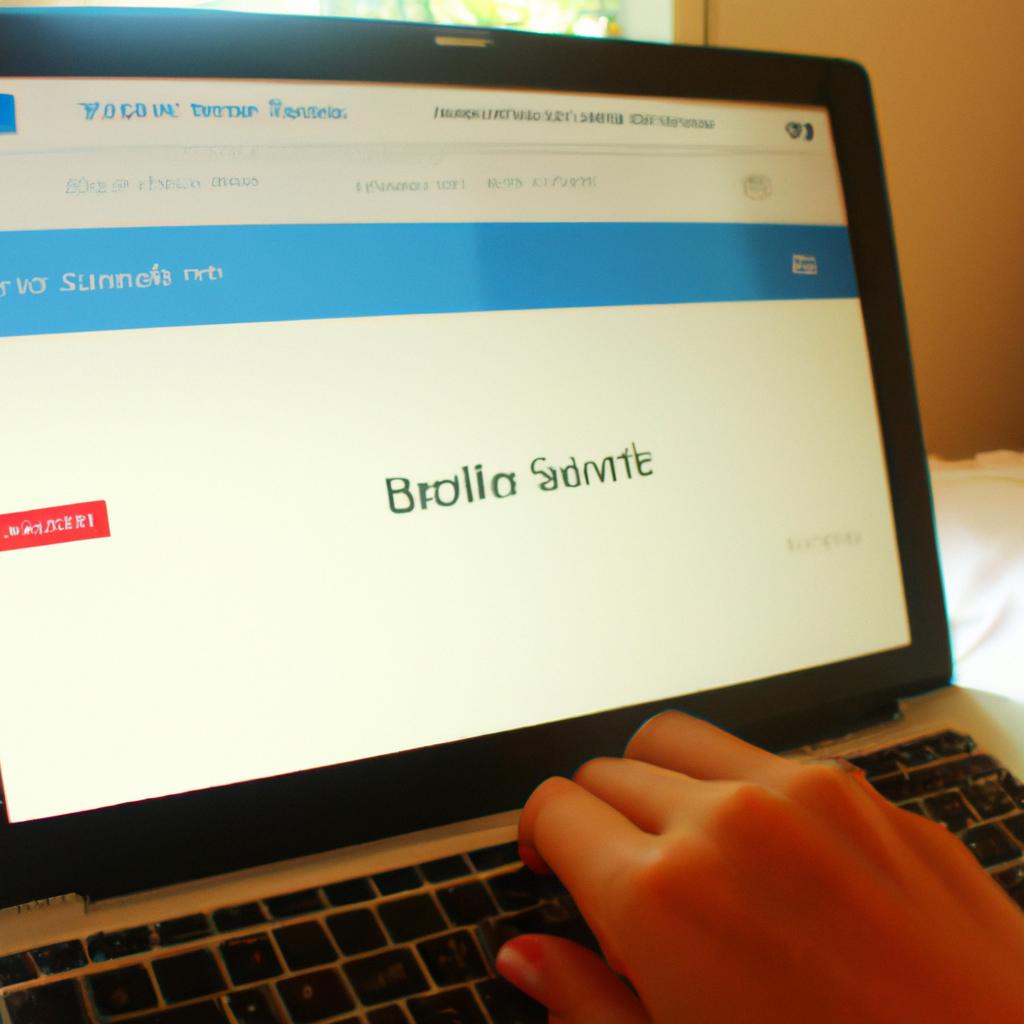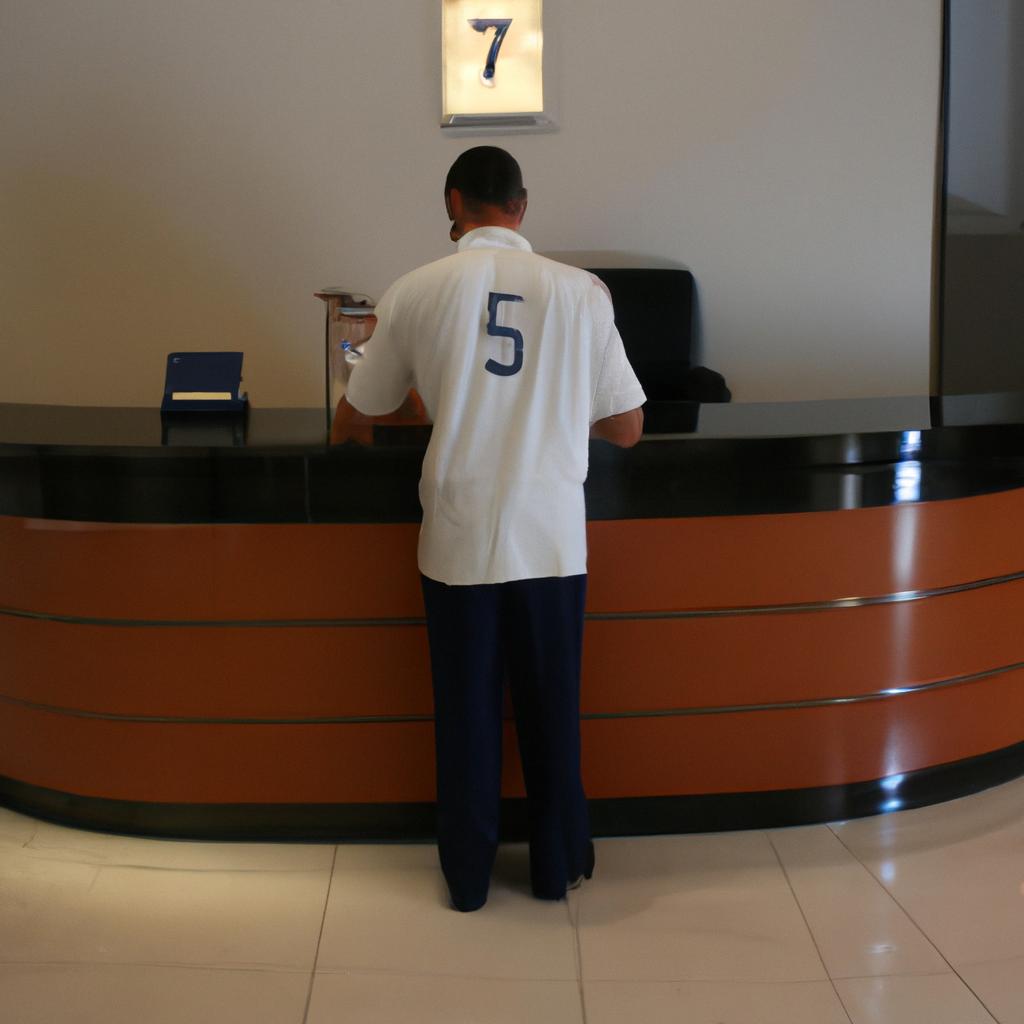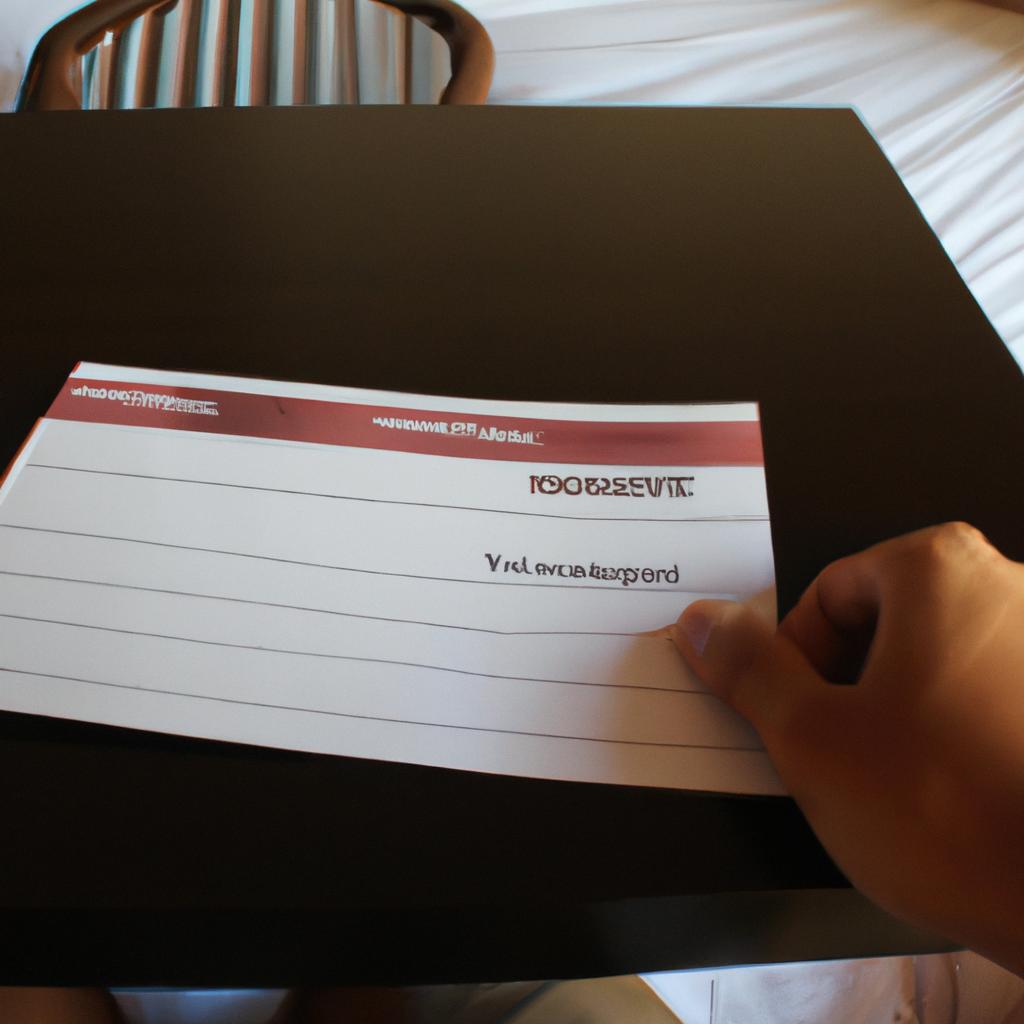The world of hotel reservations can be a labyrinthine maze, fraught with uncertainty and hidden pitfalls. For the weary traveler seeking respite in an unfamiliar city, navigating through this complex web of options and special requests can be overwhelming. Imagine being on a business trip to New York City, where finding a quiet room away from the bustling streets becomes a top priority. As you make your reservation, you are confronted with an array of choices: do you opt for a high floor or request a room facing away from the busy avenue? This article aims to serve as an informative guide, providing valuable insights into how to effectively navigate special requests when making hotel reservations.
In recent years, the demand for personalized experiences has grown exponentially within the hospitality industry. Hotels have responded by offering various amenities and services that cater to individual preferences and requirements. However, understanding how to communicate these specific needs during the reservation process is crucial in ensuring maximum satisfaction upon arrival at your chosen accommodation. By shedding light on common challenges faced when placing special requests and exploring effective ways to address them proactively, this guide seeks to empower travelers with practical knowledge that will enhance their overall experience while minimizing potential frustrations associated with hotel stays.
As we delve into the intricacies of hotel reservations and unravel the mysteries surrounding special requests, it is important to first understand the various types of special requests that travelers commonly make. These can range from simple preferences such as bed type (e.g., king or queen) and room location (e.g., near the elevator or away from high-traffic areas) to more specific needs like accessibility features for individuals with disabilities or dietary restrictions for those with unique culinary requirements.
One common challenge faced by travelers when making special requests is uncertainty about whether their request will be accommodated. While hotels strive to fulfill guest preferences, it is crucial to remember that not all requests can be guaranteed due to factors such as availability, limited resources, or logistical constraints. However, there are steps you can take to increase your chances of having your request fulfilled.
First and foremost, it is advisable to make your special request at the time of booking. Many online reservation platforms provide an option to add comments or special instructions during the booking process. Utilize this feature wisely by clearly stating your preferences or needs in a concise and polite manner. Providing specific details helps hotel staff better understand and address your request.
Keep in mind that flexibility can also play a key role in getting your desired outcome. If a particular room type or location is unavailable, consider alternative options suggested by the hotel that may still meet your requirements. Being open-minded and understanding that hotels have limitations can help alleviate frustration if your initial request cannot be fulfilled exactly as desired.
Another effective strategy is to contact the hotel directly after making your reservation. This allows you to establish direct communication with the staff responsible for handling room assignments and special requests. By speaking directly with a hotel representative, you can convey any additional information or ask questions regarding the likelihood of your request being met.
Additionally, joining loyalty programs offered by hotel chains can significantly enhance the likelihood of having your special requests honored. Loyalty program members often receive preferential treatment and enjoy benefits such as priority room assignments based on their membership level. If you frequently travel and have a preferred hotel chain, enrolling in their loyalty program can be highly advantageous.
Lastly, it is crucial to maintain a polite and respectful attitude throughout the reservation process. Remember that hotel staff are dedicated to providing exceptional service and will do their best to meet your needs. Being courteous and understanding can go a long way in fostering a positive relationship with the hotel staff, increasing the likelihood of your special requests being fulfilled.
In conclusion, successfully navigating special requests when making hotel reservations requires proactive communication, flexibility, and maintaining a respectful demeanor. By understanding the types of requests commonly made by travelers and employing effective strategies such as booking directly, joining loyalty programs, and clearly communicating preferences at the time of reservation, you can enhance your chances of having a satisfying experience during your stay. So next time you find yourself embarking on a journey in search of tranquility amidst the chaos of an unfamiliar city, armed with these insights, you’ll be better equipped to navigate through the labyrinthine world of hotel reservations.
Understanding Special Requests
Consider the following scenario: imagine you have carefully planned a vacation to a tropical paradise. You arrive at your hotel, excited and ready to relax, only to find that your room is not what you expected. Perhaps it lacks the desired view or has an uncomfortable bed. This disappointment could have been avoided if you had made a special request when making your reservation.
Special requests are specific accommodations or preferences that guests can communicate to hotels in advance of their stay. These requests can range from simple amenities like extra towels or pillows to more complex needs such as accessible rooms for individuals with disabilities. By understanding how special requests work and effectively communicating them, guests can enhance their overall hotel experience.
To better understand the importance of special requests, consider the emotional impact they can have on guests:
- Anticipation: Guests may feel excited and hopeful about their upcoming trip based on the fulfillment of their special requests.
- Satisfaction: When special requests are met successfully, guests feel valued and appreciated by the hotel staff.
- Disappointment: If a hotel fails to fulfill a requested accommodation, guests may experience frustration or dissatisfaction.
- Comfort: Meeting certain requirements through special requests allows guests to enjoy a comfortable and personalized stay.
In addition to these emotional responses, it is crucial to note that hotels often have policies and procedures in place regarding special requests. To help illustrate this point clearly, let’s take a look at the following table:
| Type of Request | Example | Hotel Policy |
|---|---|---|
| Dietary | Vegetarian meal preference | Offer vegetarian options upon request |
| Accessibility | Wheelchair-accessible room | Provide designated accessible rooms |
| Room Preference | Ocean-view room | Accommodate based on availability |
| Amenities | Extra toiletries | Supply additional items upon request |
Understanding these different types of special requests helps both hotel staff and guests navigate the process more efficiently.
By familiarizing ourselves with the concept of special requests and acknowledging their emotional impact on guests, we can now delve into specific examples of common types of requests.
Common Types of Special Requests
Now, let us delve deeper into this topic by examining some common types of special requests that guests may have during their stay.
Imagine a scenario where a guest has recently undergone knee surgery and requires an accessible room with grab bars in the bathroom for added support. This is just one example of a special request that hotels frequently encounter. Other typical special requests include extra pillows or blankets, specific dietary requirements, and assistance with transportation arrangements.
- Room upgrades to enjoy additional amenities
- Late check-out for those needing extra time before departure
- In-room dining options for guests who prefer privacy
- Baby cribs or rollaway beds to accommodate families with children
Furthermore, here is a table showcasing different categories of special requests along with corresponding examples:
| Category | Examples |
|---|---|
| Accessibility | Wheelchair-accessible rooms, shower chairs |
| Dietary Restrictions | Vegan meals, gluten-free options |
| Pet-Friendly | Dog-friendly rooms, pet sitting services |
| Celebratory Occasions | Champagne on arrival, birthday decorations |
As evident from these examples, there are various reasons why individuals might make special requests when reserving a hotel room. These personalized accommodations aim to enhance the overall experience for each guest by catering to their unique needs and preferences.
Transitioning smoothly into our next section about “How to Make Special Requests,” it is important to note that understanding the different types of special requests allows both guests and hotel staff to work together more effectively in meeting individual expectations. So how can you communicate your specific requirements? Let’s explore some helpful strategies in the following section.
How to Make Special Requests
Picture this scenario: John, a business traveler, arrives at his hotel after a long day of meetings. He is exhausted and looking forward to a good night’s sleep. However, when he enters his room, he realizes that it is located near the elevator, which generates constant noise throughout the night. Frustrated by the lack of peace and quiet, John regrets not making a special request for a quieter room in advance.
Understanding the importance of special requests can greatly enhance your overall hotel experience. Whether you have specific dietary restrictions or require certain amenities due to medical conditions, communicating these needs to the hotel staff ensures that they can make necessary arrangements to accommodate you effectively. Let us delve deeper into why special requests matter and how they can improve your stay.
Firstly, special requests allow hotels to tailor their services according to individual preferences and requirements. By offering customization options, hotels create an environment where guests feel valued and cared for. For example:
- A guest with severe allergies may need hypoallergenic bedding or allergy-friendly menus.
- An elderly guest might benefit from having grab bars installed in the bathroom for added safety.
- Guests celebrating special occasions such as anniversaries or birthdays may appreciate small gestures like complimentary champagne or personalized notes upon arrival.
- Business travelers often require high-speed internet access and dedicated workspaces in their rooms.
To highlight further why special requests are essential, consider the following emotional examples:
- Imagine being on vacation with your young children who have dietary restrictions due to food allergies. You submit a special request for allergen-free meals before arriving at the hotel; however, upon check-in, you discover that no preparations were made. This oversight causes stress and disappointment for both you and your family.
- Now picture yourself attending an important conference where timing is crucial. You specifically requested wake-up calls each morning so you could be punctual for early sessions. However, the hotel fails to provide this service as promised, resulting in missed opportunities and frustration.
| Importance of Special Requests |
|---|
| Personalized experiences tailored to individual needs |
| Enhanced guest satisfaction and loyalty |
| Improved overall comfort and convenience |
| Mitigation of potential issues or inconveniences |
In conclusion, conveying your special requests to hotels is vital for a pleasant stay that aligns with your preferences and requirements. By providing specific details about what you need, you enable the staff to deliver personalized services that enhance your experience. In our next section, we will explore effective communication strategies for making these requests.
Transitioning seamlessly into the subsequent section on “Tips for Communicating Special Requests,” let us now discuss some practical ways to ensure your requests are effectively communicated and understood by hotel staff.
Tips for Communicating Special Requests
Section: Understanding Special Requests
Once you have decided to make special requests for your hotel reservation, it is important to understand how these requests are handled by establishments. By familiarizing yourself with the process and considering some key factors, you can enhance the likelihood of having your needs met during your stay.
To illustrate, let’s consider a hypothetical scenario where a traveler with specific dietary requirements books a room at a luxurious hotel for an upcoming vacation. This individual requires a gluten-free diet due to medical reasons. In order to ensure that their dietary needs are accommodated, they include this information as a special request when making the reservation online.
When it comes to handling special requests, hotels follow certain procedures to provide suitable accommodations for their guests. Here are some key points to keep in mind:
- Importance of Early Notification: It is crucial to inform the hotel about any special requests at the time of booking or well in advance of your arrival date. This allows sufficient time for the establishment to make necessary arrangements and ensures better chances of fulfilling your request.
- Clear Communication: When making special requests, it is essential to clearly communicate your needs and expectations. Provide detailed information regarding the specific nature of your request so that staff members can adequately prepare and address them.
- Availability vs Guarantee: While hotels strive to fulfill all guest requests, it is important to remember that not all demands can be guaranteed due to various constraints such as availability or logistical limitations. Therefore, it is advisable to inquire about the feasibility of your request before assuming its fulfillment.
- Flexibility and Alternatives: On occasions where a particular request cannot be fully met, hotels often offer alternative solutions or substitutes that aim to satisfy guests’ needs without compromising on their overall experience.
To further emphasize the significance of understanding special requests in relation to hotel reservations, take a look at this table showcasing common types of special requests along with corresponding examples:
| Request Type | Example | Importance |
|---|---|---|
| Dietary Restrictions | Gluten-free meals | Vital for guest’s well-being |
| Room Preferences | Non-smoking room | Enhances comfort and satisfaction |
| Accessibility Needs | Wheelchair-accessible room | Ensures equal opportunity to enjoy facilities |
| Special Occasions | Champagne on arrival | Adds a touch of celebration |
By recognizing the importance of early notification, clear communication, managing expectations, and offering alternatives when necessary, hotels strive to ensure that guests’ special requests are handled with care. Understanding these procedures can help you navigate the process more effectively.
In the subsequent section about “Handling Special Requests at Check-In,” we will explore how hotel staff manage special requests upon your arrival without causing any inconvenience during check-in.
Handling Special Requests at Check-In
Transitioning from the previous section, where we discussed tips for communicating special requests, let us now explore the process of handling these requests upon check-in. To illustrate this further, let’s consider a hypothetical scenario involving a guest who has requested an early check-in due to their flight arriving in the morning.
Upon arrival at the hotel, guests with special requests are advised to approach the front desk and inform the staff about their specific needs. In our example, if a guest has made a request for early check-in, the front desk agent should verify if any rooms are available for immediate occupancy. If there is availability, they can proceed with accommodating the guest accordingly. However, if no rooms are ready yet, it is crucial for the staff to communicate this clearly while reassuring the guest that they will do their best to expedite the process.
To ensure efficient handling of special requests at check-in, hotels often have standard procedures in place. Here are some common practices:
- Prioritizing requests based on urgency or importance
- Utilizing technology such as automated room assignment systems
- Collaborating closely with housekeeping and other relevant departments
- Maintaining clear communication channels between staff members
By implementing these strategies, hotels aim to create a seamless experience for guests with special requests. This emphasis on efficiency not only contributes to customer satisfaction but also helps manage expectations effectively.
In summary, when handling special requests at check-in, effective communication and well-defined processes play vital roles. By promptly addressing guest needs and utilizing appropriate procedures within the hotel’s capabilities, staff can enhance overall guest satisfaction and ensure smooth operations. With this understanding of how special requests are managed during check-in, let us now move forward to discuss ensuring satisfaction with these requests in subsequent sections
Ensuring Satisfaction with Special Requests
Building upon our understanding of handling special requests at check-in, it is equally important to ensure that these requests are met throughout a guest’s stay. By taking proactive measures and maintaining effective communication channels, hotels can guarantee customer satisfaction and enhance their overall experience.
To illustrate this further, let us consider the case of Mr. Johnson, who had specifically requested a room on a higher floor due to his preference for a quieter environment during his business trip. The hotel staff not only assigned him a room on the desired floor but also went above and beyond by ensuring that he had access to additional amenities such as complimentary Wi-Fi and an in-room coffee maker. This personalized approach left Mr. Johnson highly satisfied with his stay, resulting in positive feedback about the hotel’s commitment to meeting special requests.
To consistently achieve similar levels of customer satisfaction, here are some key strategies that hotels can employ:
- Maintain open lines of communication: Encourage guests to communicate any specific requirements or preferences before their arrival through online reservation systems or dedicated email addresses. Promptly respond to these inquiries and confirm whether the request can be accommodated.
- Train staff effectively: Provide comprehensive training programs for all frontline personnel to familiarize them with different types of special requests and how best to address them. Empower employees with decision-making authority so they can promptly resolve any issues that may arise.
- Regularly update guest profiles: Keep detailed records of past requests and preferences for returning guests. Use technology-driven tools like Customer Relationship Management (CRM) software to efficiently manage this information across multiple touchpoints.
- Continuously monitor quality assurance: Implement regular audits and inspections to assess whether special requests are being fulfilled accurately and promptly. Collect feedback from guests regarding their experiences related to their individualized needs.
The following table demonstrates how effective handling of special requests can impact guest satisfaction:
| Request | Handling Approach | Guest Satisfaction |
|---|---|---|
| Room Location | Accommodated | Highly Satisfied |
| Extra Pillows | Delivered within Minutes | Very Satisfied |
| Late Check-out | Granted upon Availability | Moderately Satisfied |
| Allergen-Free Meals | Offered customized menu options | Extremely Satisfied |
By prioritizing special requests and incorporating them into their service culture, hotels can ensure that guests feel valued and understood. Taking proactive measures to meet guests’ individual needs not only enhances customer satisfaction but also contributes to establishing a positive reputation for the hotel.
Incorporating these strategies will enable hotels to go beyond mere accommodation by providing personalized experiences tailored to each guest’s preferences. By doing so, they strengthen their position as providers of exceptional hospitality services in an increasingly competitive industry.
 Cedars Inn Auburn
Cedars Inn Auburn



